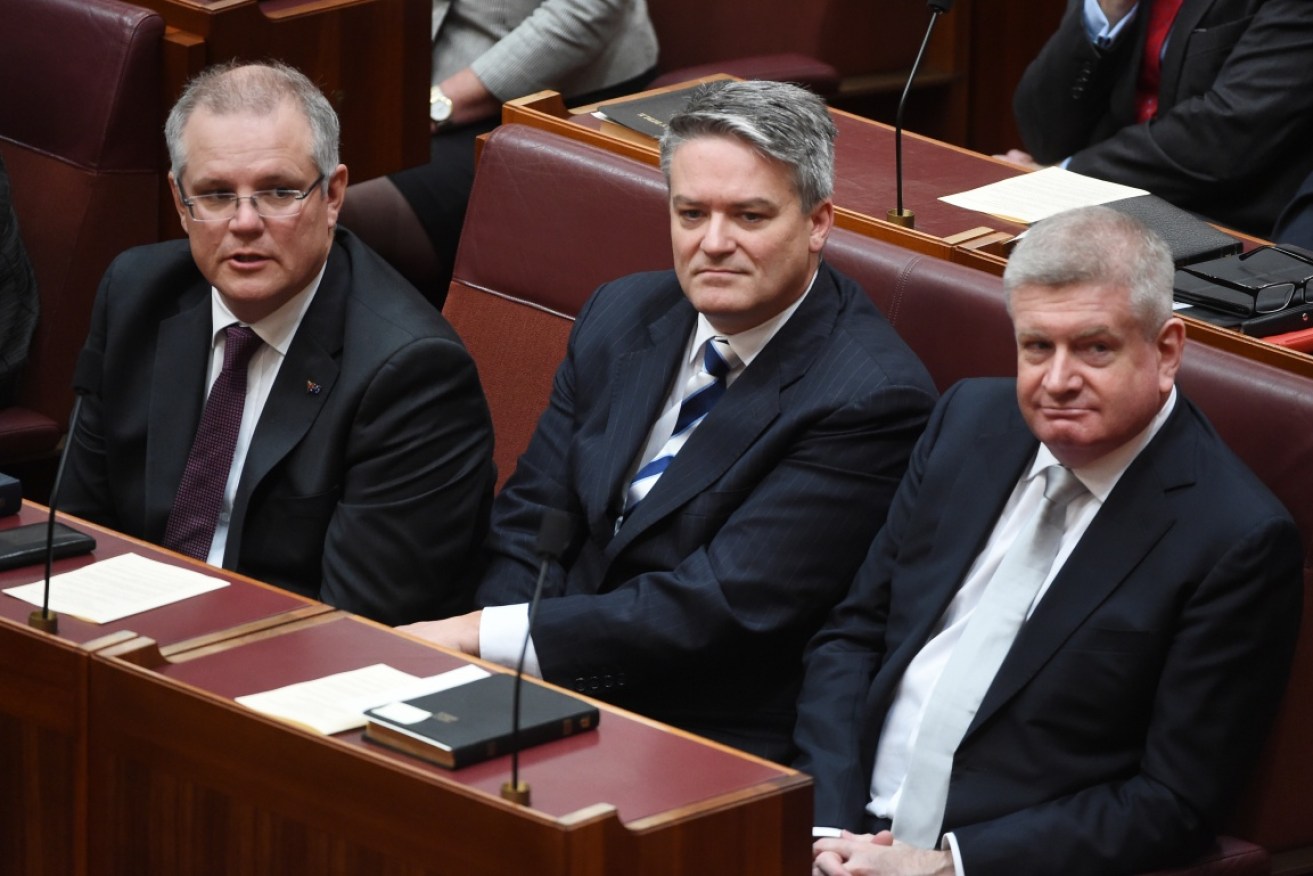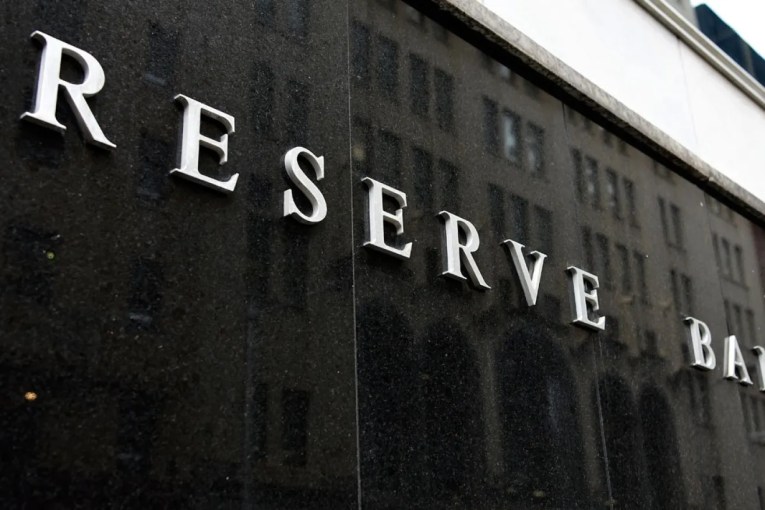There are two debt problems in Scott Morrison’s backyard


Mathias Cormann (centre) has dismissed calls for a sacking. Photo: AAP
ANALYSIS
Ahead of the ceremonial opening of Parliament on Tuesday, Treasurer Scott Morrison took a brief stroll through the corridors of the press gallery offices.
Like many treasurers before him, he enjoyed a joke with a gaggle of journos before moving into the adjoining Mural Room for a formal media conference.
The message was simple. Labor, he said, had baked a number of budget savings into the costings they took to the federal election, and all he was asking them to do now was vote in favour of that same $6.5 billion worth of savings.
Mr Morrison pointed out that public debt was growing by $1.4 billion a week – which works out to be around $58 per Australian resident per week.
That’s not good, but those figures needs to be put in context – especially in relation to private debt.
The RBA view
Over at the Reserve Bank of Australia, the long-held view of private debt is that it can rise quickly as long as the value of assets it’s secured against also rises quickly.
In private mortgage borrowing, if your equity in a property is growing it should be okay to keep borrowing ever-larger amounts.
To a bank, the ‘asset’ in the housing market is not bricks and mortar – it’s really the pile of signed papers known as a mortgage which commits the householder to paying back a debt over many years.

Reserve Bank boss Glenn Stevens says household debt is gaining more attention. Photo: AAP
With government borrowing, there are assets such as roads, the Future Fund and foreign currency reserves, but the ‘asset’ against which it secures debt is really the taxpayer who agrees, under threat of fines or imprisonment, to keep servicing that debt.
Both public and private debt depend, therefore, on the income streams generated by Australian households.
The problem is that for many years the stock of debt has increased much faster than the household incomes used to service it.
According to RBA data, owner-occupier households have taken on additional debt at the rate of $2.2 billion a week in the past year – 60 per cent more than Mr Morrison’s $1.4 billion.
That works out to around $92 per Australian resident per week if averaged across the country, though it is actually concentrated in the one-third of households who have mortgages.
A change of tune
Attitudes to debt are changing at the RBA. As reported recently, outgoing governor Glenn Stevens has admitted that: “Foreign visitors to the Reserve Bank over the years have tended to raise questions about household debt much more frequently than they have raised questions about government debt.”

Mr Morrison says government debt is more important than private debt. Photo: AAP
At Tuesday’s media conference, I asked Mr Morrison what he thought of this change of tune from the RBA. Isn’t private debt more of a risk to the economy than public debt?
“The debt that I need to focus on most is government debt,” he replied. “We need to manage what’s in our house. We need to manage what’s in this house.
“This house, whether it’s the House of Representatives or the Senate, needs to manage the debt that is being driven by decisions in this place.
“So I’m going to focus on my backyard first. I’m not going to start lecturing Australians in their backyards about how they’re managing their finances, because we’ve got an issue to deal with right here in this Parliament, starting today.”
It’s a slick answer, but a flawed one
That’s because Canberra has been telling Australians for years ‘how to manage their finances’ in relation to housing, through tax laws that actively pump up the price of houses and the volumes of debt secured against them.
Mr Morrison’s side of politics created the capital gains tax discount that, in combination with negative gearing laws, started the house price bubble in 1999.

Kevin Rudd should have reversed the capital gains tax discount and negative gearing when he became PM. Photo: AAP
Labor should have reversed those decisions when Kevin Rudd became PM in 2007, but didn’t.
Not until this year did Labor finally announce capital gains and negative reforms to gradually deflate that bubble – reforms that Mr Morrison railed against during the recent election campaign.
And that’s the problem with the Treasurer’s response on Tuesday. He’s right that Canberra should not tell people how to manage their finances, but until those laws are changed that’s exactly what it is doing.
Artificially accelerating credit growth in the private sector, while trying to slow it in the public sector, is a recipe for a house price crash and a huge hit to the economy.
Heaven forbid that things go that far – but if they do, the Treasurer will find the resulting economic carnage is very much in his own backyard after all.








